Jan 2022 edition
Jan 2022 edition Estelle Greeff
English PDF version
Translations
Afrikaans
isiNdebele
isiXhosa
isiZulu
Sepedi
Sesotho
Setswana
Siswati
Tshivenda
Xitsonga
ASIDI fast tracks school infrastructure
ASIDI fast tracks school infrastructure SiboneloNkululeko Ralo Primary School is a good example of how positive results can be achieved when communities and government work together.
The school, based in Mthatha in the Eastern Cape, first started operating in a garage at the home of community member Nkululeko Ralo, who it is named after.
Over the years, the school moved a number of times as it expanded.
However, learners and teachers never had the benefit of proper facilities until recently, when they walked through the doors of their new, state-of-the-art school.
The school was completed as part of the Accelerated Schools Infrastructure Delivery Initiative (ASIDI), which was launched by the Department of Basic Education in 2011.
The initiative aims to replace schools that compromise the safety of learners and staff, due to a lack of proper infrastructure, water, sanitation and electricity.
To date, ASIDI has built 266 schools, provided 886 schools with sanitation, 1 030 with water and 372 with electricity.
The learners of Nkululeko Ralo Primary School now have proper classrooms and access to a resource centre, science laboratory, multi-purpose and a nutrition centre.
A shared vision
Principal Koleka Gilman is passionate about improving education in Mthatha.
Her dream to start a school for her community began in 1988, and the following year, she began sharing her vision with the community.
“Our community was highly populated with a lot of children of school-going age who had nowhere to go for education. My vision was welcomed by community member Nkululeko Ralo, who offered his home garage to be used as a school,” says Gilman.
She adds that Ralo went on to organise a container from Telkom and it was used as an additional classroom.
Ralo also arranged with two members in his community to offer their garages as additional classrooms. Ralo sadly passed away in 2004.
In 1994, the school moved to the Eli Spilkin Hall, which was built by local businessman Eli Spilkin.
“In the same year, we received mobile toilets from the provincial Department of Education.
I then looked [for] and applied for a site where we would eventually build our school. We received five hectares of land in 1998,” says Gilman.
Three temporary classrooms were donated to the school by a non-profit organisation called Kats and Spaks, and the community built five mud classrooms.
Throughout the years, Gilman continued to advocate for the school to be improved and eventually, five classrooms were received from the Eastern Cape Premier’s Office.
In 2014, things took a positive turn when the Department of Basic Education, through ASIDI, issued a tender to build Nkululeko Ralo Primary School.
“Construction started in 2018 and the school was completed in 2021, thanks to ASIDI,” says Gilman.
Inspiring teaching and learning
Basic Education Deputy Minister Reginah Mhaule says the department wants to ensure that the physical infrastructure of every school inspires learners to attend school and learn, and educators to teach.
“The building of this school is government’s way of restoring dignity to rural and under-privileged school-going children and their teachers,” she adds.
A member of the school governing body, Nomuntu Dlengane, says the new school will motivate teachers and learners to reach their full potential.
“Our learners’ attitudes and self-confidence have already improved due to the new infrastructure.
This will also help us maintain social distancing in our classrooms so that we can eliminate the spread of the Coronavirus Disease,” says Dlengane.
The school has 489 learners, 14 teachers, and two administration clerks. It caters for grades R to 7 and is a non-fee paying school.
ASIDI in numbers
- There were 39 ASIDI schools completed between 202 and 2021.
- R1.395 billion was spent building schools during the 2020/2021 financial year.
- In total, an amount of R8.195 billion has been spent on the construction of 266 schools.
Apply now for a Gibela bursary
Apply now for a Gibela bursary SiboneloGibela Rail Transport Consortium is calling for applications for 200 bursaries that will be awarded for 2022.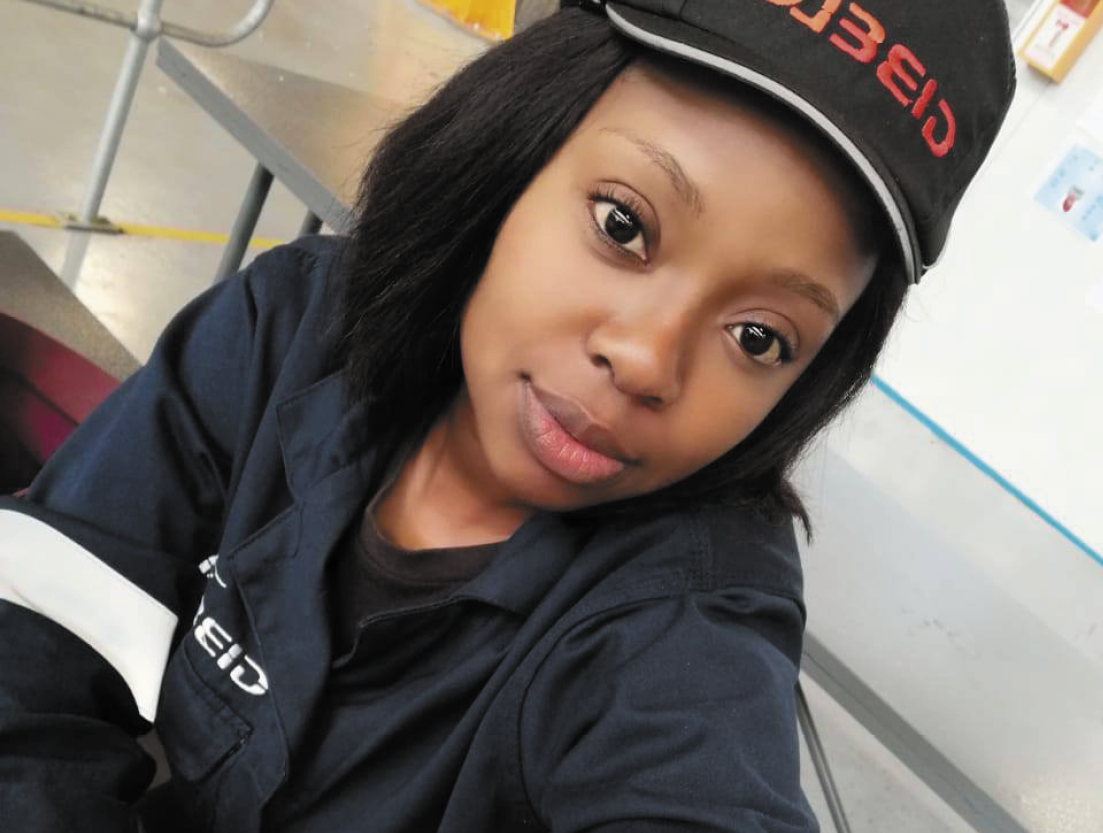
Bursaries are available to students who are already studying or have enrolled at universities, universities of technology, or technical and vocational education and training (TVET) colleges.
Bursaries are available for various fields, including engineering, manufacturing, computer science, supply chain and logistics.
The bursary programme was established in 2015 with Gibela aiming to provide bursaries to 2 800 students by 2024. Gibela has provided
1 181 bursaries to date.
“We invest in upskilling professionals to build trains in South Africa and ensure they have the skills to continue developing their careers, beyond our contract term with the Passenger Rail Agency of South Africa,” says Dr Buyiswa Mncono-Liwani, Gibela’s Corporate Service and Traction Motors Operations Executive.
Past beneficiary
Thabi Skosana was awarded a Gibela bursary in 2016 while a student at Ekurhuleni East TVET College, KwaThema Campus. She was studying towards a diploma in electrical engineering.
“I applied for their bursary while doing my N4. The bursary funded my studies and provided me with a transport allowance. At the end of 2016, I completed my N6 in electrical engineering,” she says.
Two years later, Skosana applied and was accepted into the Millwright apprenticeship at Gibela. Skosana and the other apprentices were taken to the Saj Competency Training Institute for an eight-month training programme that included theory and practical elements.
"The following year we returned to Gibela for our on-the-job training. We didn’t have all the resources for our trades, so Gibela placed us in different companies so that we could be more exposed to many different things,” she says.
Skosana has been placed with Rodecon Engineering in Alberton.
How to apply
To apply for a bursary to a university or university of technology, applicants must have passed Grade 12 with level six mathematics, physical science and accounting; level five English; and have proof of acceptance to a university or university of technology.
To apply for a bursary to a TVET college, applicants must have passed Grade 12 with level four mathematics, physical science and English; and have proof of acceptance to a TVET college.
Bursary applications close on 15 February. To apply, send a short CV, a certified copy of your academic records and a certified copy of your South African identity document to gibelabursaries@communityrail.co.za or fax these to 086 246 2666.
Apply now for your free TV decoder
Apply now for your free TV decoder SiboneloSouth Africa’s analogue television (TV) transmission will be switched off at the end of March 2022, and those who don’t have a decoder will be unable to watch TV.
According to Johan Kruger, the spokesperson for the South African Post Office (SAPO), qualifying households can still apply for their free TV decoder, also known as a set-top box.
To qualify for a free decoder, you must have a working TV set and your family’s income must be less than R3 500 a month.
Why do I need a decoder?
Kruger explains that the country’s free TV channels currently use an old-fashioned signal, called an analogue signal.
“This signal uses a huge amount of data and is prone to interference – often the picture flickers. These signals can also cause interference with TV transmissions in South Africa's neighbouring countries,” he says.
The new digital signal takes up only a small amount of space. Instead of four free TV channels (SABC1, 2, 3 and eTV), those who have a decoder will have access to over 20 free TV channels. Best of all, they will also have access to all the South African Broadcasting Corporation’s radio stations in the country.
If you have a DStv, Open View high definition or StarSat decoder, you do not need a set-top box as these decoders are already suitable for digital TV.
How to apply
To apply you must visit your closest SAPO branch and complete the application.
“It is not possible to apply for the decoder online,” Kruger says.
Those who qualify must apply as soon as possible and take the following with them:
- South African identity document;
- Proof of address;
- An affidavit to confirm that the family has a working television set;
- A bank statement or affidavit to confirm that the family income is
- R3 500 per month or less: or proof that you receive a South African Social Security Agency (SASSA) grant. If you receive a SASSA grant, you do not need to provide proof of income.
The SAPO branches have standard affidavits that applicants can use to declare their income, confirm that they own a working television set and confirm their residential address.
Once an application has been approved, the SAPO provides the information to Sentech to appoint a local installer to install your set-top box.
For more information, contact the SAPO via SMS (31133), call 0860 111 502, email customer.services@postoffice.co.za or follow on Twitter: @PostofficeSA or Facebook: @PostofficeSA.
Beware of fake schools and colleges
Beware of fake schools and colleges SiboneloParents and aspiring students are being warned to be wary of bogus schools and colleges.

Each year, people fall prey to institutions posing as above board and reputable private schools and colleges, when in fact they are not properly registered with the Department of Basic Education (DBE) or the Department of Higher Education and Training (DHET).
The departments urge people to verify the legitimacy of both the schools and the qualifications they offer. Qualifications can be verified by the South African Qualifications Authority (SAQA).
Basic education
DBE spokesperson Elijah Mhlanga says provincial departments have a responsibility to ensure that schools within their borders are registered.
“Any school that is deemed as independent needs to be registered with the DBE as a bare minimum to be considered as suitable for learners to attend.
"The DBE encourages parents to practice vigilance and be aware of the channels they can follow to ensure that a school meets the minimum registration requirements,” he says.
Mhlanga adds that when in doubt, you should contact your provincial education department and request confirmation of the school’s legitimacy. You can also ask a school to provide you with an Education Management Information Systems number, by which the school can be identified.
Higher education
DHET spokesperson Ishmael Mnisi says, as of October 2021, the department had identified 89 bogus private institutions of higher learning operating in South Africa.
“These colleges use a range of methods to mislead the public. The recent trends identified by the department are online operators committing internet fraud by purporting to offer degrees in 15 days, using the name and logo of the DHET. Most of the websites appear to be based in the United States and in the United Kingdom,” he explains.
Mnisi says when the DHET suspects that a college is bogus, it investigates the institution. If evidence of illegitimacy is found, a letter of warning is issued, and the case is referred to the police.
“We have filed cases against the 89 bogus colleges with the South African Police Services and the Federal Bureau of Investigation in the US,” he says
Students can check a college or institution’s registration status with the DHET by calling its toll-free number 0800 872 222. Qualifications can be verified by SAQA at www.saqa.org.za
Boost your business with WhatsApp
Boost your business with WhatsApp SiboneloWhatsApp is more than a way to keep in touch with people – it can help start-up businesses flourish.
The free-to-download and -use WhatsApp Business app can be used by entrepreneurs and small business owners to engage their customers, boost sales and grow their business.
A recently held online masterclass unpacked the many opportunities presented by this app in a user-friendly way.
The session was presented by Digital Marketing Strategist, Blessing Letsoara, the founder of Strats Connect, and was hosted by Digify Africa and Government Communication and Information System, as part of the VukTalks series.
It covered various topics, from how to download WhatsApp Business and set up a business profile, to best practices when communicating with customers.
WhatsApp Business was specifically built with the small business owner in mind. The app makes it easy to personally connect with customers, highlight products and services, and answer customers’ questions.
“You can even create a catalogue to showcase your products and services and use special tools to automate, sort and quickly respond to messages,” said Letsoara.
Download WhatsApp Business
 While most people already use WhatsApp Messenger on their mobile phone, WhatsApp Business is a different app that can be downloaded for free from the Google Play Store or Apple iStore.
While most people already use WhatsApp Messenger on their mobile phone, WhatsApp Business is a different app that can be downloaded for free from the Google Play Store or Apple iStore.
WhatsApp Messenger has a telephone icon, while WhatsApp Business has the letter ‘B’ as an icon..
“If you already have WhatsApp Messenger on your phone, you can either download WhatsApp Business and use it for both business and personal messaging, or you can use another sim card with a different telephone number to register for WhatsApp Business,” he said.
To set up WhatsApp Business, follow these steps:
- Download WhatsApp Business.
- Open the app and register your mobile number.
- Complete your WhatsApp Business profile: Input the business name, choose a profile picture, select the business category, write a description, business address, business hours, and add email and website addresses.
WhatsApp Business tools
Letsoara adds that WhatsApp Business can be used to set a company apart from its competitors. It creates digital ‘living rooms’ where business owners can have conversations with customers in a controlled environment. The app offers various business tools to grow your business, namely:
- Automated messages: Set an away message when you are unable to answer, so your customers know when to expect a response. You can also create a greeting message to introduce your customers to your business.
- Labels: Organise your contacts or chats with labels, so you can find them easily.
- Quick replies: Save time by writing answers to frequently asked questions.
- Short link: Create a link that can be used on Facebook or Instagram, which directs customers to WhatsApp when they click it.
- Review metrics: Provides statistics for adverts you run from Facebook or Instagram, so you can see if they are successful.
These options can all be found in the settings menu, under business settings in the app.
Best practices to follow
To create a good impression of your business when using the app, there are best practices that you should follow, said Letsoara.These include:
- Respond to messages: Don’t make people wait too long.
- Monitor trends: Do some research on how people are communicating online and how they are responding to other businesses, especially your competitors. Look at their comments on Facebook and Instagram and on your company’s social media accounts.
- Set expectations: When you promise something, deliver.
- Write the way you speak: Use plain language.
Using Facebook adverts
You can direct customers to WhatsApp Business, from Facebook and Instagram, by inserting your ‘short link’ in an advert or post. You can also use a call-to-action, such as ‘send message’, when you run an advert on Facebook and Instagram.
“When people click on ‘send message’, they can send a message directly to your WhatsApp Business app on your mobile phone,” Letsoara added.
“WhatsApp Business is simple to use, secure and reliable. It ensures that only you and the person you are sending a message to will see the conversation, ensuring that sending details about your business is safe,” Letsoara said.
For more information about WhatsApp Business, visit www.facebookblueprint.com and enter WhatsApp Business in the search bar.
Corruption hurts everyone
Corruption hurts everyone SiboneloBribery, fraud and corruption stall service delivery, making the rich even richer, and the poor and vulnerable even poorer.
According to Kaizer Kganyago, the Head of Stakeholder Relations and Communications at the Special Investigating Unit (SIU), corruption has a negative impact on government’s ability to deliver basic services, such as electricity, roads, build infrastructure, and provide healthcare, water and sanitation.
“Corruption in public administration affects all of us. It takes trust out of the system. It takes money out of the system that could otherwise be used for the good of the community”.
“It leaves the less privileged poorer, and cuts down employment opportunities as less resources are available for public investment,” he says.
What is corruption?
Corruption is when people in power use their position to make themselves or others they know rich, or to benefit themselves in some other way.
“This includes accepting bribes or other gifts and using public money for personal gain,“ says Kganyago.
Some examples of corruption include:
- A government official selling an RDP house, which results in the house not going to the worthy recipient who has been on the waiting list for a long time.
- Bribing a traffic officer: By doing so, you don’t take responsibility for your actions and continue to put other road users and pedestrians at risk.
- Bribing police officers: Criminals who do this remain on the street and make our communities unsafe.
- Installing illegal electricity connections: Besides not paying for electricity, illegal connections don’t have the required electrical protection and people can get electrocuted.
- Giving contracts or jobs to friends or family: When this happens, the person who deserves the job does not get it, and the person employed often doesn’t have the skills needed to do the job properly.
- Manipulating a process or system in return for money, a gift or favour.
Kganyago says the public can contribute to the fight against corruption by reporting corruption at government departments, municipalities and state-owned entities.
Report corruption to the SIU by calling the toll-free whistle-blower hotline at 0800 037 774, sending an SMS to 30916, emailing siu@thehotline.co.za, or using the telephone web app: www.thehotlineapp.co.za or website: www.thehotline.co.za
Funding makes dreams a reality
Funding makes dreams a reality SiboneloRaesetja Frans is running two private clinics that provide affordable healthcare in different parts of Limpopo. 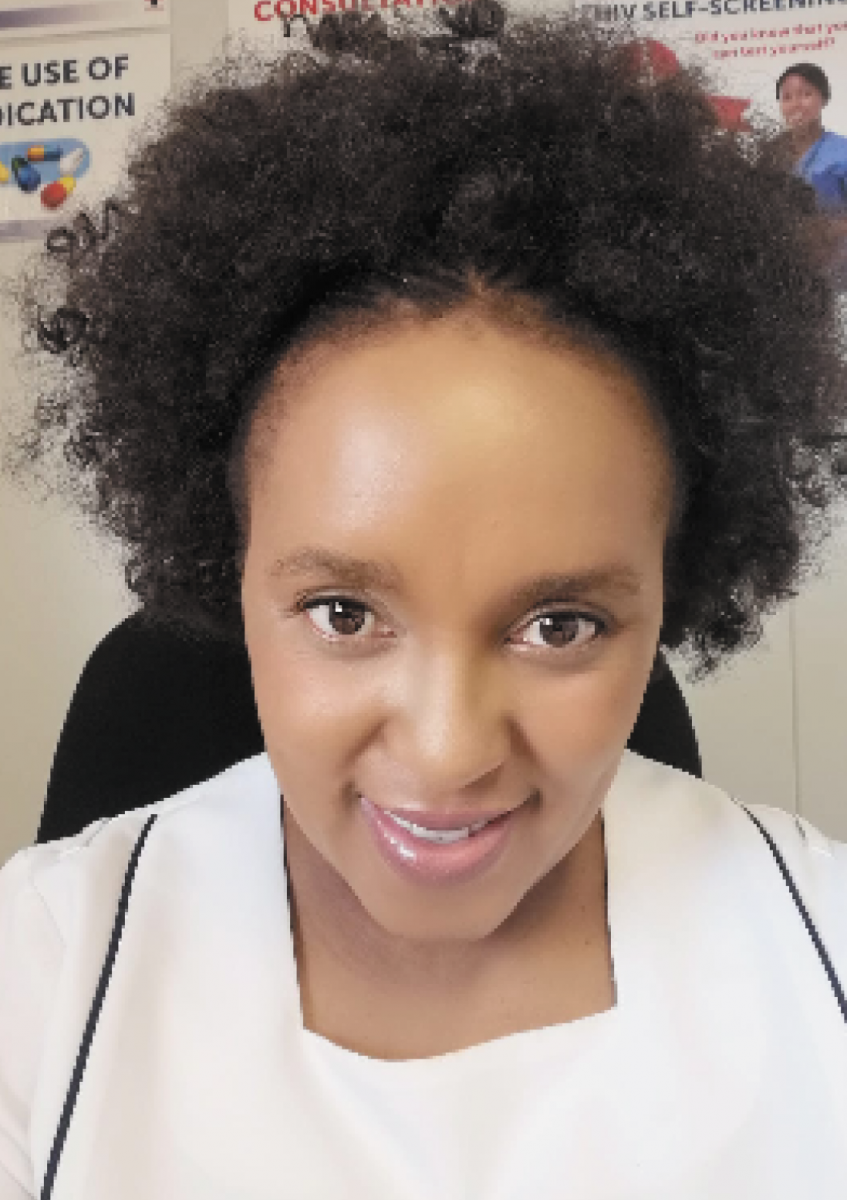
Her vision of bringing healthcare to the community was made possible with the help of the Small Enterprise Finance Agency (Sefa), which provided R480 000 in funding and the Small Enterprise Development Agency (Seda), which assisted with marketing.
The Vital Care Clinic in Mokopane and Unjani Clinic in Tshamahansi are both owned by Frans.
She used the funding from Sefa to buy furniture, stock and staff salaries.
Both clinics offer family planning, pregnancy care, chronic illness management, immunisation services and treatment for common illnesses, such as colds.
“The clinics assist people who cannot afford private doctors, but also can’t spend the entire day in a queue at a public health facility,” she says.
Frans has an extensive nursing background, having worked in public and private hospitals for 15 years. She also has a Master’s Degree in Public Health from the University of Limpopo.
She employs four permanent and four temporary people in her clinics.
How to get funding
You can apply for funding through the Common Application Template form which can be found on the Seda and Sefa websites.
In addition to the form, Sefa applicants must also supply a certified copy of the business owner’s identity document, stamped bank statements or a bank account confirmation letter.
Seda also assists small medium and micro enterprises draft business plans and achieve tax and business registration compliance.
For more information log on to www.sefa.org.za/products/term-loan or www.seda.org.za
Get vaccinated
Get vaccinated SiboneloThe new Coronavirus Disease (COVID-19) variant, Omicron, has made it even more important for South Africans to get fully vaccinated as soon as possible. South African scientists recently discovered the new variant of the virus.
Health Minister Dr Joe Phaahla said South Africa now has over 20 months’ experience in handling COVID-19 and knows that new variants of the Coronavirus are to be expected.
Variants of viruses occur when there is a change – or mutation – to the virus’ genes.
KwaZulu-Natal epidemiologist Salim Abdool Karim said Omicron has far more mutations than previous variants, some that scientists have seen before and know well.
He said it is not yet clear whether infection of Omicron causes more severe illness, compared with infections with other variants. However, he says it appears to spread more easily, which makes it a variant of concern.
“Our biggest challenge will be to stop super- spreading events – particularly indoors,” he said.
Are vaccines effective?
National Institute for Communicable Diseases (NICD) scientist Waasila Jassat said at the end of November the vast majority of COVID-19 patients admitted to hospital were unvaccinated, and most cases were young adults.
President Cyril Ramaphosa has called on South Africans to get their vaccines, adding that there is overwhelming scientific evidence that vaccination is the best defence against serious COVID-19 infections.
According to the President, vaccines have dramatically reduced severe illness, hospitalisation and death in South Africa and across the world.
According to the NICD COVID-19 vaccines should protect people against severe illness caused by Omicron.
Mandatory vaccination a possibility
While it is hoped that people will heed the call to get vaccinated, President Ramaphosa said mandatory vaccination for certain sectors is being urgently considered.
“We have therefore been undertaking engagements with social partners and other stakeholders on introducing measures that make vaccination a condition for access to workplaces, public events, public transport and public establishments,” he added.
The President encouraged South Africans to continue to adhere to COVID-19 protocols such as getting vaccinated, wearing a mask, washing hands regularly, and avoiding crowded places and packed indoor gatherings.
For the latest COVID-19 vaccination sites, visit: https://sacoronavirus.co.za/active-vaccination-sites/
Learn African languages easily online
Learn African languages easily online SiboneloChido Dzinotyiwei’s (25) passion for Africa and its languages encouraged her to develop Vambo Academy, an online platform that makes learning languages fun and interactive. 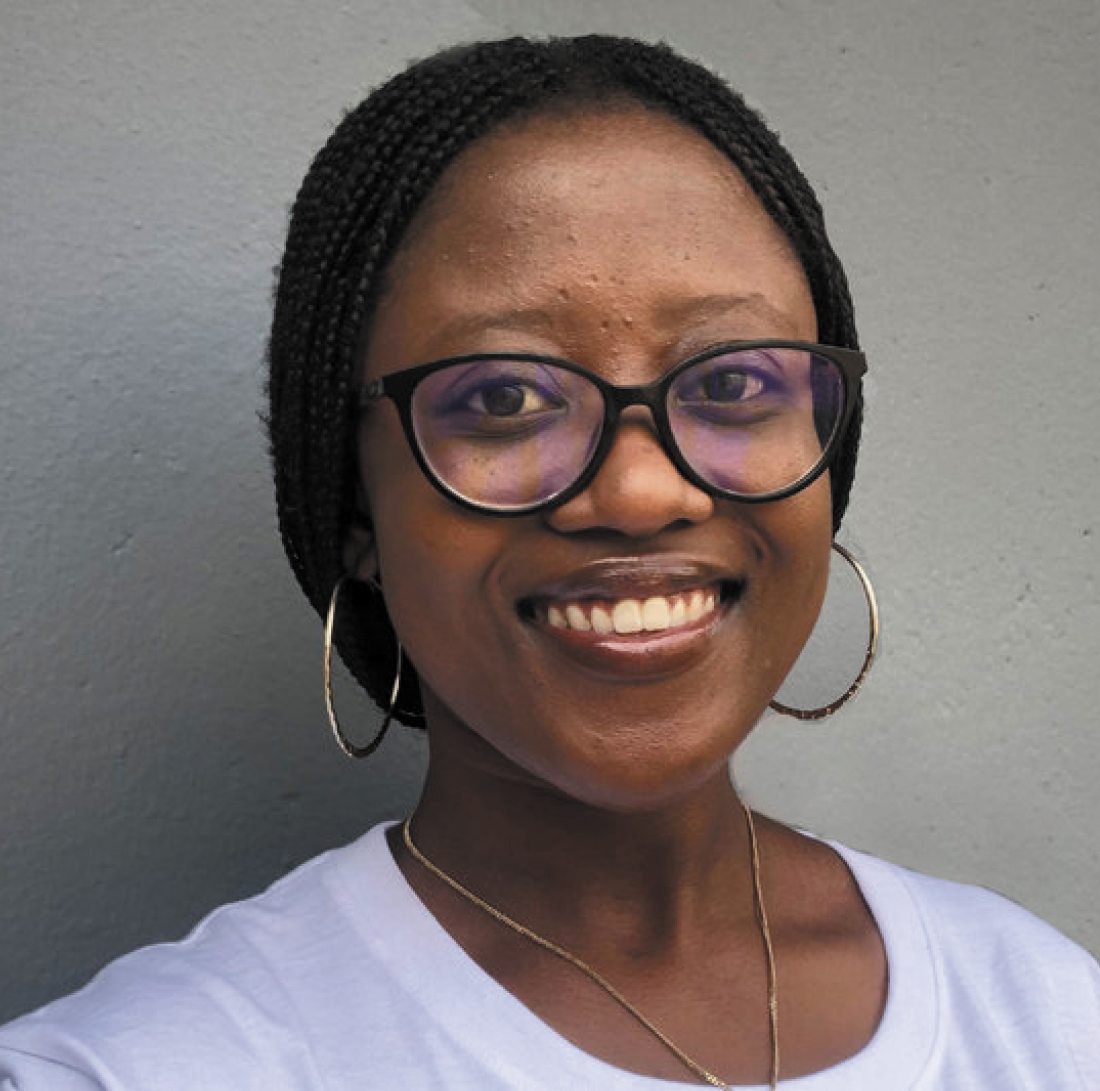
Dzinotyiwei, who holds a Bachelor of Commerce Honours specialising in Economics, and a Master of Commerce degree in Development Finance from the University of Cape Town, came up with the idea in her gap year.
“I needed money for travelling when attending job interviews and social events, so I started thinking of my inherent skills and decided to monetise one or two of them. I am fluent in my mother tongue, ChiShona, and happened to know parents who were struggling to teach their children ChiShona,” says Dzinotyiwei.
“My first student was a six-year-old boy, and he is still a student today. The business grew steadily, but once the pandemic started, we took it online. What we see today is the product of that investment,” she adds.
The platform offers beginner and intermediate lessons in isiZulu, isiNdebele and ChiShona; a dictionary service; and blog posts and podcasts on cultural topics.
Students can either use the self-learning tool and learn at their own pace, or book a virtual session with an experienced tutor for a one-on-one, personalised learning experience.
“Through Vambo, I want to create access to education on the continent. Language is one of the main barriers that prevents students from pursuing their dreams,” says Dzinotyiwei.
Over the next few years, she wants to develop a tool to translate languages. “We are also working on using technology to improve traditional learning methods. The main goal now is to have as many African languages as possible presented adequately on our platform.”
For more information, visit www.vamboacademy.com or call or WhatsApp 082 347 8114. Lessons range from R150 per month (self-learning) to R180 per virtual session.
MDDA powers airwaves
MDDA powers airwaves SiboneloRadio 7441 FM, a community radio station that provides information and entertainment to the community of Malmesbury in the Western Cape, was given a boost after receiving funding for two studios.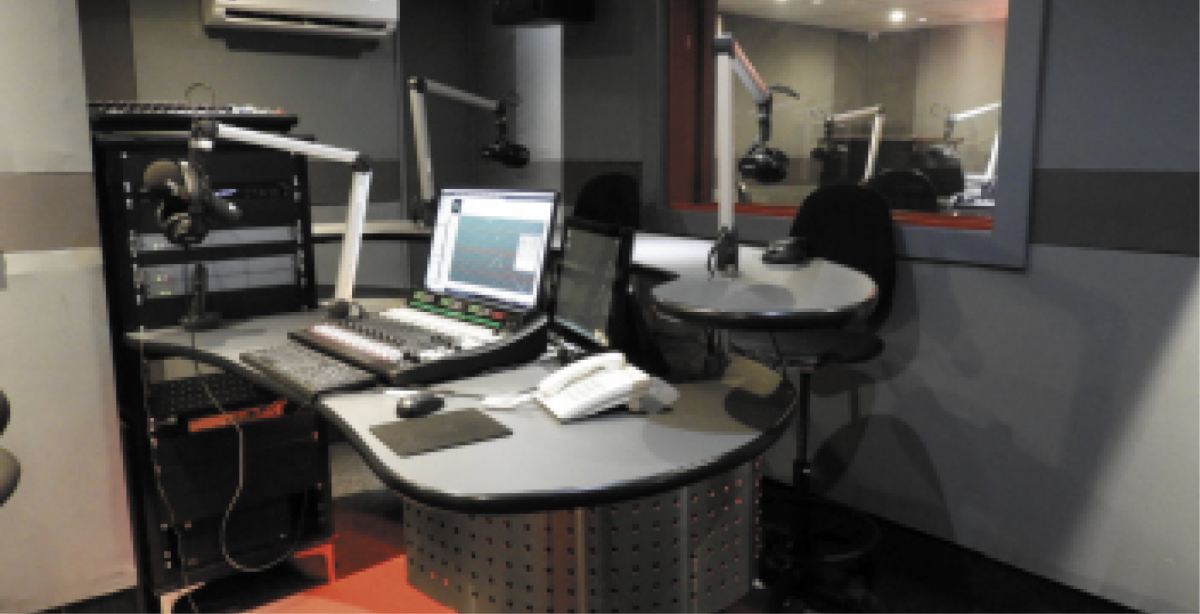
The Media Development and Diversity Agency (MDDA) provided the radio station with R3.3 million for its new on-air studio and production studios.
Manager and Radio 7441 FM founder, Norman Mazibuko, said the community radio station, which broadcasts in the West Coast District Municipality started in a tavern in 2019.
It broadcasts mainly in isiXhosa, with 20% English content.
The station is set to grow further.
“The new state-of-the-art studios will elevate the quality of broadcasting, making it appealing to potential partners and propelling Radio 7441 FM to even greater heights,” said Mazibuko.
According to the Deputy Minister in the Presidency, Thembi Siweya, the MDDA approved funding for 22 community broadcast projects in the 2020/2021 financial year, with Radio 7441 FM being one of them.
Funding for community media
The MDDA’s mandate is to promote media development and diversity.
It funds community media projects, such as radio, TV, print and digital publications on an annual basis. It also funds small commercial print publications.
The application process opens in May and closes after six weeks.
“The MDDA has since its inception, supported over 300 community media initiatives. In its funding support, the MDDA applies a stringent set of criteria to identify those projects whose priority is to change the material conditions in local communities plagued by social and economic inequalities,” said the Deputy Minister.
Mazibuko explained that when applying for funding, the radio station had to ensure it had an active Independent Communications Authority of South Africa licence to broadcast. In addition, it had to be tax compliant, and ensure that its status as a non-profit company was up to date.
The MDDA also requires that applicants in the field of broadcast have audited financial statements. However, projects that are less than two years old are not required to submit financial statements. Applicants that have already published print and online publications are required to submit copies of their work.
Other requirements are:
- An affidavit stating the applicant is not connected to, owned or controlled by any commercial media entity or individual; or any political party and government;
- A business plan with a three-year financial projection plan. There is a business plan template downloadable from the MDDA website;
- A budget outline using the Excel template downloadable from the MDDA website;
- A copy of the station’s programming schedule;
- The CVs of four key personnel.
For more information on funding, visit www.mdda.org.za/funding-applications, or call 011 643 1100.
Matlapu’s dedication to learners rewarded
Matlapu’s dedication to learners rewarded SiboneloA 20-year teaching veteran has been praised for her innovative thinking and determination to ensure learning took place at her school during the lockdown.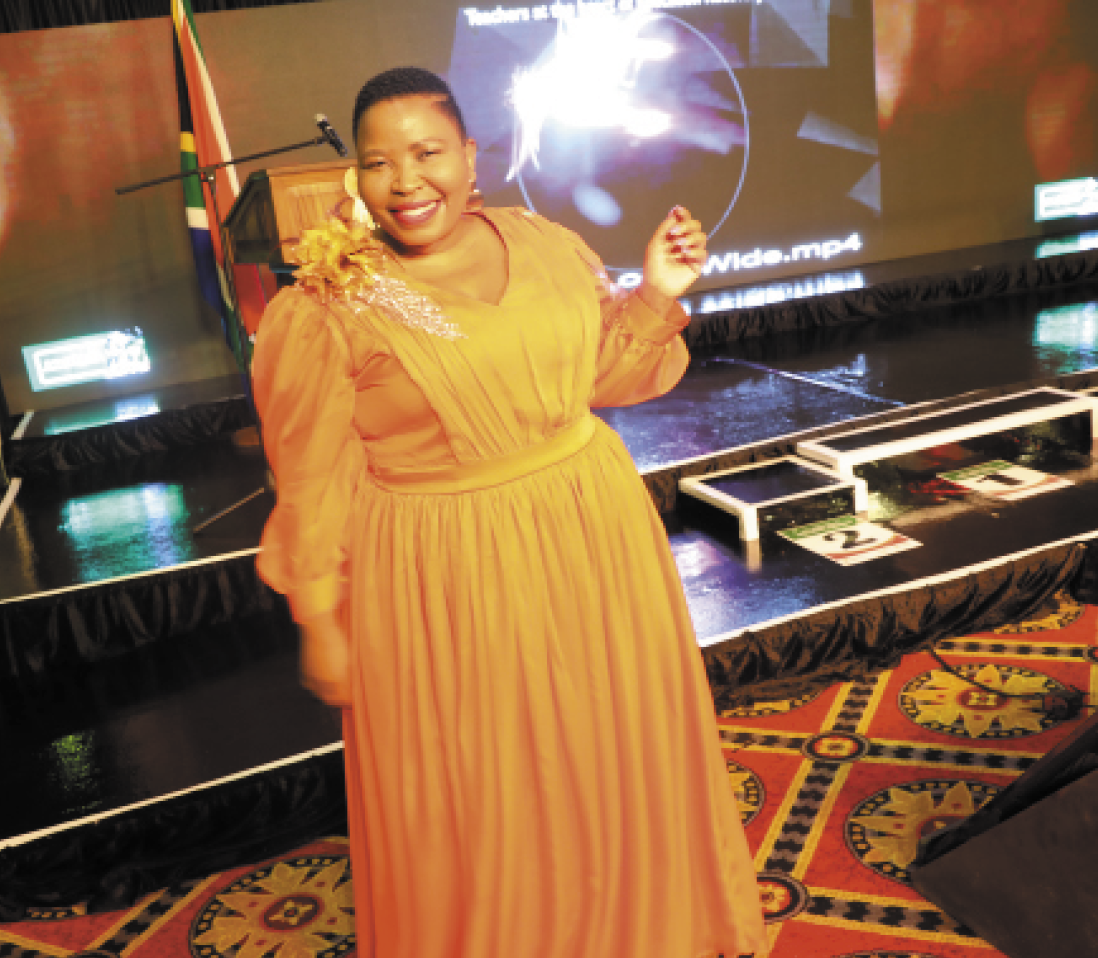
The principal of SJ van der Merwe Full Service Technical High School in Limpopo, Nkasana Matlapu (41), was awarded the S/Hero Award at the National Teaching Awards recently.
Matlapu was acknowledged for her efforts to organise cellphones and data to enable learning to continue during the Coronavirus Disease (COVID-19) schools shutdowns in 2020.
“When we tried to move online – by using WhatsApp as a teaching platform – we realised some learners were not responding at all, or they would respond very late.
“I investigated to see what was causing this, and found that seven learners did not have cellphones, and that other pupils were using their parents’ phones.
“This meant they only participated in the lessons when their parents were at home,” says Matlapu.
Once she understood the challenges faced by the learners, Matlapu galvanised the school’s former learners to dig into their pockets and assist.
“Our school’s alumni managed to raise funds and we bought seven smartphones that I delivered to the learners’ homes”.
“While we were organising the phones, my team and I realised that there were parents who had lost jobs during the pandemic, so we also took groceries with the phones,” she says.
Another challenge soon became evident, when Matlapu found that learners who had cellphones could not afford data.
Again, the school community stepped in to cover these costs.
Matlapu's efforts paid off with 77% of the school’s 204 matriculants passing their 2020 final exams.
Relentless commitment
When presenting the awards, Basic Education Minister Angie Motshekga, praised Matlapu and other winners for their passion.
In her congratulatory message, Motshekga said: “Your relentless commitment to the national cause of educating the young ones gives all of us strength and, of course, pride.”
Matlapu has received many accolades during her career.
In 2005, she came third in the Internet Service Providers’ Association’s Super Teacher of the Year; won the 2006 Young Tycoons Champions with her Grade 10 pupils; and was 2007’s best Matric Accounting Teacher in the Bahlaloga circuit of Limpopo.
In 2012, her Mathematics Grade 12 class obtained a 100% pass rate and, at the National Teaching Awards in 2017, Matlapu was named third in the secondary school leadership category.
Municipal Boundary Re-determination Process
Municipal Boundary Re-determination Process Sibonelo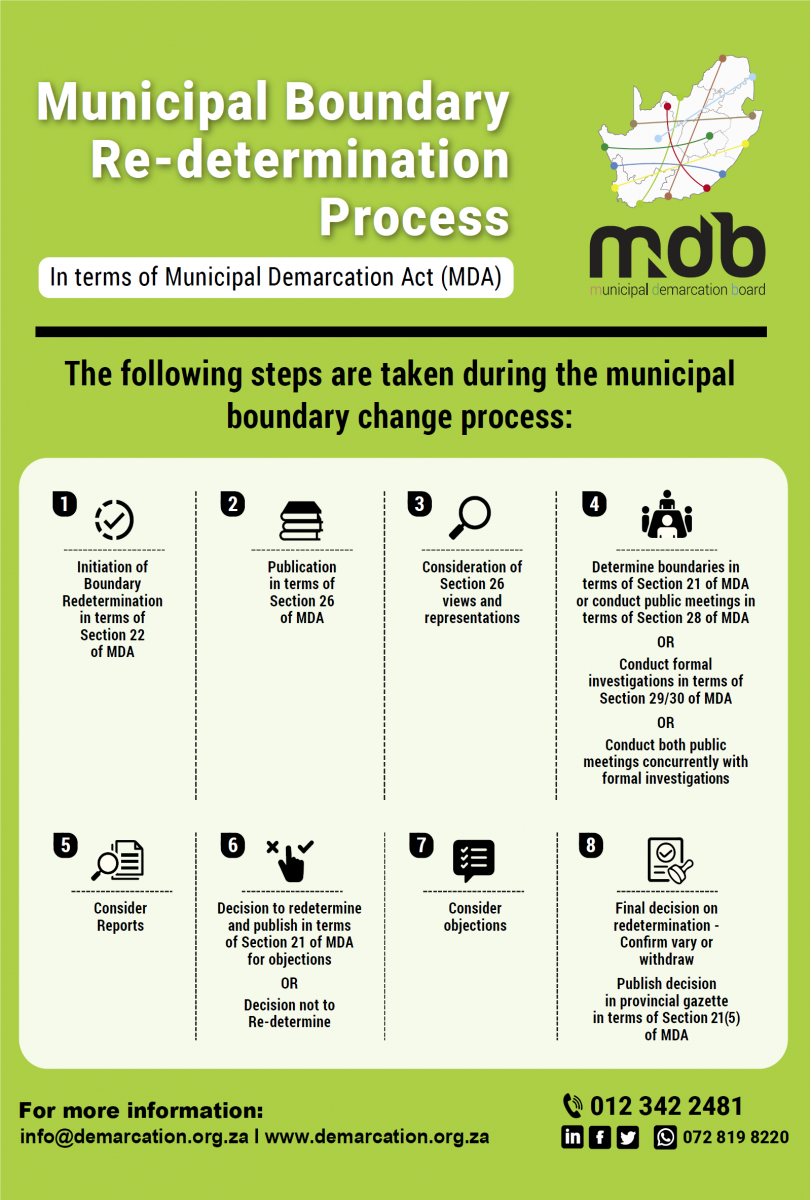
Musina Road brings economic boost
Musina Road brings economic boost SiboneloExpected to open early this year, the Musina Ring Road is one of government’s key projects in infrastructure development.
The Musina Ring Road is set to bring development to the Limpopo border town. Government has invested over R640 million in the stretch of road that will open up new economic opportunities for the town.
The 8km Musina Ring Road will enable the 1 000 trucks travelling daily between the Beitbridge border and Musina to bypass the overcrowded town’s central business district.
The new road, one of government’s Strategic Integrated Projects (SIPs), is a single-carriageway freeway that has three major bridges and two interchanges.
During a visit to the construction site recently, Minister in The Presidency Mondli Gungubele said the road, which is being constructed by the South African National Roads Agency (Sanral), and other SIPs are an opportunity to attract investment to the country.
According to Minister Gungubele, once the Musina Ring Road is complete, it will ensure the uninterrupted movement of goods to the Beitbridge border with neighbouring Zimbabwe.
With a number of South African Development Community exporters and importers using the Beitbridge border post, the upgrade is set to improve the flow of economic activity between South Africa and its neighbours.
Vital job creation
The construction project has already created 3 500 jobs. The developers allocated 10% of the project to women-owned companies and local community members, and small, medium-sized and micro-enterprises (SMMEs) were subcontracted.
Manager for Sanral’s Northern Region Progress Hlahla said that 19 subcontracts went to SMMEs from around Musina. “We spent R50 million on subcontractors on this project,” he said.
Carpenter Thabang Moeketsi, said since he started working on the project in 2020, he has been able to provide for his family while also being able to afford basic necessities for himself.
“My job is to ensure that the wood structures are properly put in place, so that when the shuttering with concrete is being done, it is done properly and is very strong,” said Moeketsi.
Strategic Integrated Projects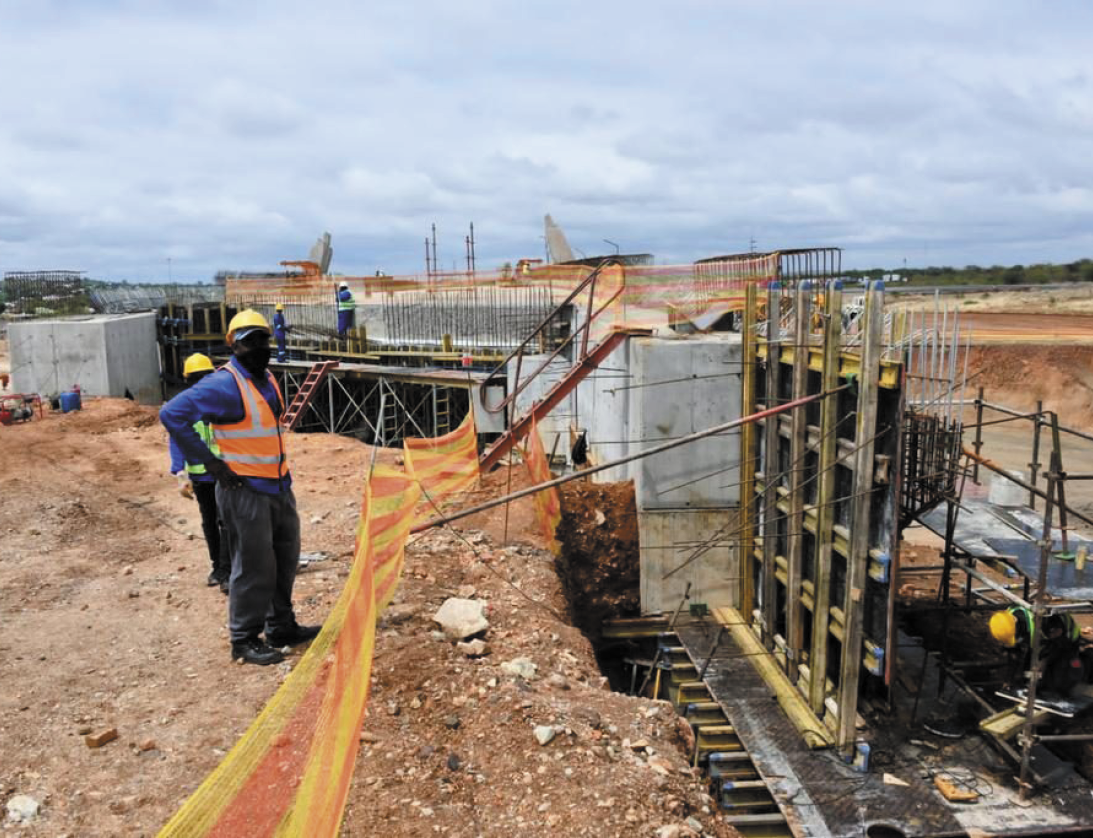
Speaking during a media tour of the construction site, the Head of Infrastructure and Investment Office in The Presidency, Kgosientso Ramokgopa, said the SIPs are estimated to cost R340 billion.
He said the water, energy, transport and information communication and technology infrastructure projects that make up SIPs are part of the Economic Reconstruction and Recovery Plan.
“To date, we have already started with 19 of the 55 projects. These are to the tune of R19 billion,” Ramokgopa said.
He added that the SIPs are expected to take between six and 24 months to complete, depending on their complexity.
Tendai Kudzinga, who is a long-haul truck driver, said the Musina Ring Road will make the commute in the area much better.
“With a big truck, it takes time to manoeuvre in this town as there are too many cars that you have to share the road with,” he said.
Sanral Chairperson Themba Mhambi said trucks travelling to and from Beitbridge cause major damage to the road infrastructure in town and they also add to the traffic congestion, which creates conflict with local traffic officials and pedestrians.
Mhambi added that roads in towns such as Musina are deteriorating as they are not designed to handle heavy trucks. He explained that one way to ease the congestion, while simultaneously ensuring that roads last longer, is the construction of ring roads.
As part of easing border travel, the South African and Zimbabwean governments are working on developing a one-stop border post which will help with the flow of traffic.
NSFAS funding deadline looms
NSFAS funding deadline looms SiboneloStudents and youth from disadvantaged and working-class backgrounds are encouraged to apply for funding from the National Student Financial Aid Scheme (NSFAS).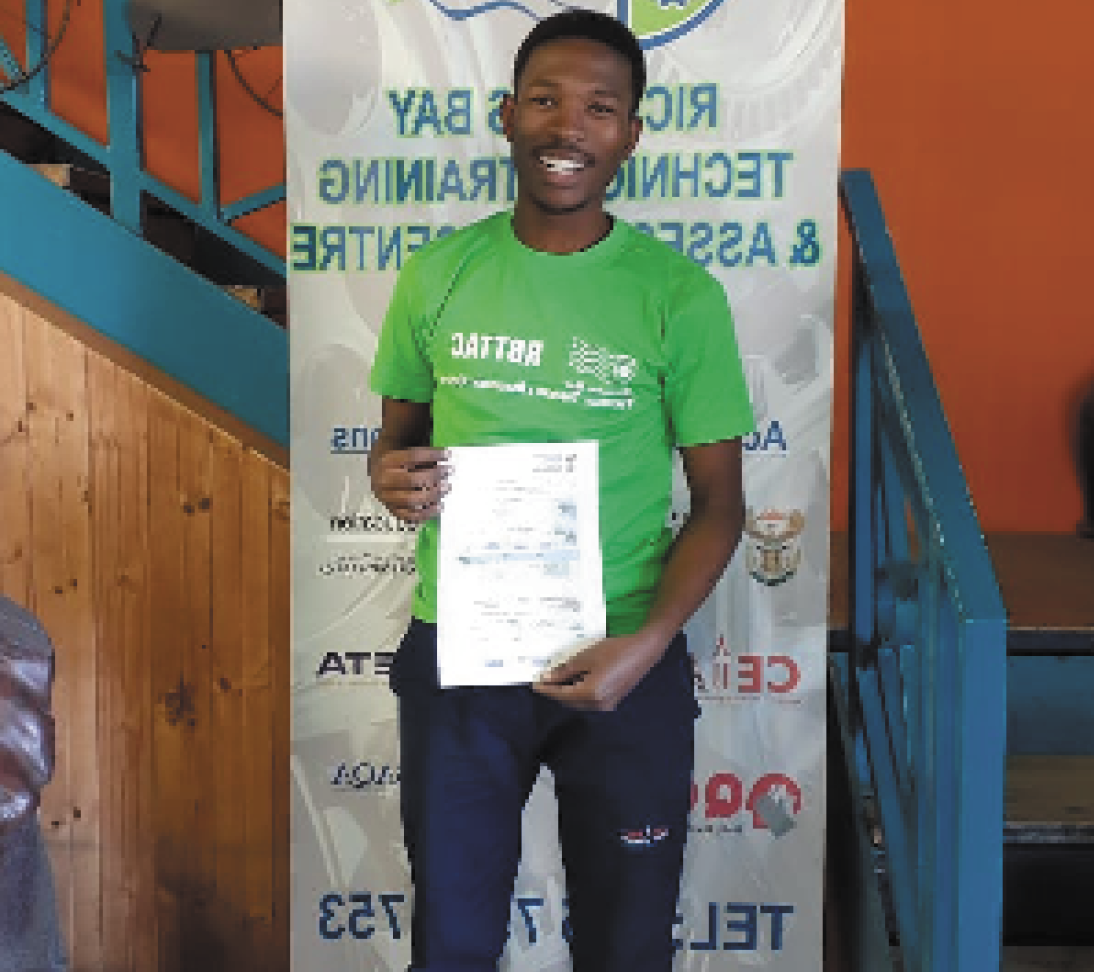
According to the Department of Higher Education and Training, NSFAS funding is available to youth who have already completed their schooling or are already studying at any level in a higher education institution.
They can apply for funding from NSFAS to study at a public university or a technical and vocational education and training (TVET) college, but must do so before the closing date on 7 January 2022.Applicants must be:
- South African citizens or permanent residents who want to register or are already studying at a public university or TVET college;
- South African Social Security Agency grant recipients;
- From households with a combined household income not exceeding
R350 000 per year.
A brighter future
Nhlakanipho Mkhize (26) is a qualified electrician, thanks to NSFAS funding, which paid for his studies at Umfolozi TVET College in KwaZulu-Natal.
Mkhize, from Richards Bay, obtained a National Certificate (Vocational) Electrical Infrastructure Construction in 2017.
In addition to campus-based learning, he also had to complete workplace training and pass a trade test.
Early on in his studies, Mkhize had the opportunity to put what he learnt into practice, ensuring that he gained confidence in the basic skills he was developing.
“As a first-year student, I was already attending to electricity problems in my community. Umfolozi TVET College provided us with both theory and practice.
“The advantage TVET students have is not just exposure, but also a compulsory workplace-based learning component to certify that they are competent before receiving their qualification,” he says.
Like many South African youth who come from underprivileged backgrounds, Mkhize knew he wanted to pursue a career in engineering, but no one in his family could afford college fees.
“When I became aware of the NSFAS funding, I knew it would lead to where I wanted to go – being an engineer,” he says.
Mkhize’s three-year NSFAS funding paid for his books, tuition and transport, and he received a personal care allowance
How to apply
Students can apply online by following these steps:
- Step 1: Go to www.nsfas.org.za and click on the ‘myNSFAS’ tab.
- Step 2: Create a myNSFAS account.
- Step 3: Click on the ‘apply’ tab and complete the sections on the screen.
- Step 4: Upload the required supporting documents, where applicable.
- Step 5: Click ‘submit’.
For more information, visit www.nsfas.org.za or follow on social media at Facebook: National Student Financial Aid Scheme, Twitter: @myNSFAS and Instagram: @myNSFAS
No excuse for GBV
No excuse for GBV SiboneloFrom the Union Buildings
If a nation’s character can be judged by how it treats women and children, then we are falling desperately short. 
The latest crime statistics released by the South African Police Service (SAPS) show an increase in rapes, domestic violence, and, perhaps most worryingly, in child murders.
Between July and September 2021, 9 556 people, most of whom were women, were raped. This is 7% more than in the previous reporting period.
Of the nearly 73 000 assault cases reported during this period, more than 13 000 were domestic violence-related. The rate of child murders has climbed by nearly a third compared to the previous reporting period.
We have said before that the violence perpetrated by men against women is the second pandemic that our country must confront, and like the COVID-19 pandemic it can be overcome if we all work together.
As government, we have a duty and responsibility to devote the necessary resources to combat crimes of gender-based violence (GBV).
Since the launch of the National Strategic Plan to Combat Gender-based Violence and Femicide (NSP) in 2020, there have been a several interventions to respond to GBV.
This includes far-reaching legislative reform, support to survivors through the provision of evidence kits at police stations and psycho-social services, the establishment of a Gender-Based Violence and Femicide Fund and supporting the network of Thuthuzela and Khuseleka Care Centres.
The SAPS has indicated we are making progress in reducing the significant backlogs in DNA analysis, which is crucial to securing justice for survivors of sex crimes.
The SAPS also operates 134 GBV desks at police stations around the country and is in the process of establishing more.
GBV is a problem of male violence. It is predominantly men who are rapists. It is mainly men who are perpetrators of domestic violence.
Because it is men who are the main perpetrators, it should be men taking the lead in speaking out and reporting GBV, in raising awareness, in peer education and in prevention efforts.
It should be men in positions of authority in our educational system, whether as school principals, educators or lecturers, who should be making schools and places of higher learning safe spaces for female learners and students, and never, ever abusing their position of authority to demand sexual favours.
Men should also be playing a more formative and present role in their families, particularly in raising their sons to exhibit healthy, positive masculinity that is respectful of women and children.
Communities and community organisations must work with government to implement interventions that redefine masculinity so that we raise men with empathy, tolerance and respect.
Just as ending GBV cannot be the state’s responsibility alone, the onus cannot be on women and children to end the shocking levels of violence and abuse being visited upon them.
South African men need to play a greater role in preventing GBV. They need to understand what constitutes GBV, especially sexual violence.
The latest crime statistics show nearly 4 000 people were raped in their homes or that of the perpetrator, and in 400 reported rape cases the victim and perpetrator had a relationship. This suggests that some men do not understand that sexual activity without explicit consent is a crime.
Men must respect their wives and girlfriends and understand that being in an intimate partner relationship is never a justification for domestic violence.
If each man gathers two men and the three pledge to never rape a woman, never lay a hand on a woman and hold each other accountable to this pledge, we can start to seriously tackle GBV in our country.
It is not enough to intervene only once perpetrators have entered the criminal justice system. We have to prevent GBV before it happens.
I call on all South African men, young and old, city dwellers and rural dwellers, modernists and traditionalists, married and unmarried, to be part of the prevention efforts that are sorely needed in homes and in our communities.
You will be sending a clear sign that neither kinship, friendship or loyalty can be an excuse for not standing up for the rights of women and children.
Poultry sector continues to grow
Poultry sector continues to grow SiboneloIf you are interested in starting a poultry farm, you can approach the South African Poultry Association (SAPA) for assistance.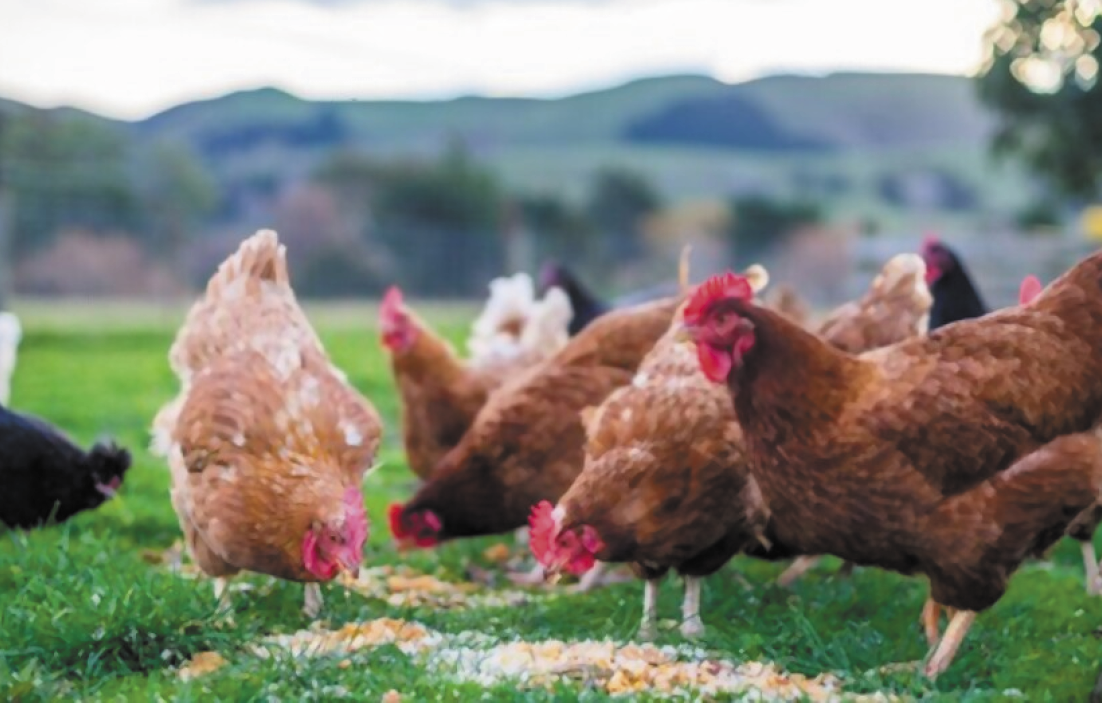
SAPA is a non-governmental organisation comprising poultry industry players.
The association helps farmers deal with poultry industry issues, such as skills and technology transfer. It also helps farmers to access its Transformation Grant Fund, and blended funding in partnership with the Industrial Development Corporation (IDC).
Izaak Breitenbach from SAPA’s Broiler Organisation says more black poultry farmers are entering the industry due to the association’s assistance.
“In the past two years alone, black farmers have built 79 poultry houses, valued at R355 million. The industry as a whole has also invested R1.14 billion to create markets for these additional chickens.”
Poultry Master Plan
SAPA’s work responds to government’s Poultry Master Plan, which aims to develop small-scale chicken farmers into commercial farmers.
Developed in 2020 by the Department of Trade, Industry and Competition and industry stakeholders, the master plan aims to improve access to markets and stop the import of cheap chickens from countries like Brazil and the United States of America.
In response to the master plan, SAPA has assisted farmers with technical information to grow their farms in line with industry standards, and has helped 40 independent broiler producers with business plans, environmental impact assessments and water licences.
“Black farmers who have standing contracts with markets were farming 12.6 million chickens as of 25 November 2021,” Breitenbach says.
The association has also trained 1 900 emerging farmers in farming operations.
KC Hatchery
SAPA helped Clive Tigere from KC Hatchery in Louis Trichardt, Limpopo, to enter the commercial chicken farming space.
When he started his farm, business was slow, but after approaching SAPA in 2018, he was able to access more clients and his business grew, he says.
Tigere received R140 000 from the Transformation Grant Fund in 2018. In 2021, he received R12 million from the SAPA and IDC blended funding initiative.
He now sells broiler chicks, and owns three shops that sell 2 500 chicks per week.
“We also have contracts to supply between 1 000 and 10 000 day-old broiler chicks weekly,” says Tigere.
Small-scale farmers needing assistance can contact SAPA at 011 795 9920 or visit www.sapoultry.co.za
Report corrupt SA Post Office employees
Report corrupt SA Post Office employees SiboneloDO NOT PAY a fee at the South African Post Office to be taken to the front of the queue when you collect a government grant.
It is illegal to pay a South African Post Office (SAPO) employee to get to the front of the queue quicker when collecting a grant at the post office.
If you are approached by a SAPO employee for payment to shorten your waiting time in a queue, you should report this immediately.
According to SAPO spokesman Johan Kruger, the SAPO has received complaints from the public about SAPO employees and self-appointed queue marshals accepting bribes to take people to the front of the queue.
Kruger urges grant recipients to lay a charge of bribery and corruption at their nearest police station, if any SAPO employee or queue marshal demands a fee in exchange for a free service, as this is illegal.
“Asking for bribes is defined as corruption by the law.
If employees are found guilty of this charge in an internal hearing, they are dismissed and a criminal charge is laid against them with the police,” says Kruger.
SAPO’s internal Security and Investigations Unit works with the SAPS to lay formal charges against culprits and to put a stop to unethical behaviour.
If you are visiting a SAPO office, remember to also observe COVID-19 regulations. This includes wearing a mask, sanitising and social distancing, to reduce the chance of spreading or contracting the virus.
“These measures are compulsory on SAPO property,” says Kruger.
If you are asked to pay a bribe, or you are aware of any criminal act at SAPO, report it anonymously to SAPO’s toll-free crime-buster hotline at 0800 020 070 or Customer Services at 0860 111 502. You can also send an SMS to 31133 (normal rates apply), email: tipoff@postoffice.co.za or customer.services@postoffice.co.za
Sbahle Sithole – a brickmaker on the rise
Sbahle Sithole – a brickmaker on the rise SiboneloSbahle Sithole is a young entrepreneur who is blazing a trail in the construction industry.
Sithole (27), from Newcastle in KwaZulu-Natal, is the founder of SMAIS Bricks, a company she registered in 2018 while pursuing a degree in accounting at the University of the Witwatersrand.
“I have always aspired to be one of the youngest women in construction, although I barely knew how to get myself into such an industry,” she says.
Shortly after graduating, also in 2018, Sithole’s mother bought her a brickmaking machine as a gift.
After receiving the machine from her mother she saw an opportunity to enter the construction industry and fulfil her dream.
Sithole manufactures M140 blocks and foundation bricks (also known as mampara).
Sithole says she has learnt a lot about the construction business and now wishes to expand and manufacture more building materials.
Sithole is one of the young entrepreneurs who have applied for funding from the National Empowerment Fund (NEF) in August 2021. She is currently waiting for a response.
The NEF funds black entrepreneurs to create real economic empowerment for black people. It assists existing and start-up businesses with non-financial business support, and also helps them financially through various funds, including the Women Empowerment Fund; Imbewu Fund; COVID-19 Business Fund; Umnotho Fund, Rural, Township and Community Development Fund; Strategic Projects Fund; Arts and Culture Venture Capital Fund; and Tourism Transformational Fund.
How to apply for funding from the NEF
- Visit www.nefcorp.co.za and click on the ‘funding solutions’ tab.
- Do a needs analysis for yourself and your business by reading and understanding all nine funds the NEF offers.
- Click 'how to apply for funding', under the 'funding solutions' tab at the top of the page. Download an application form and fill it in to present your business case for assessment. You must attach a proposal that contains information that your business will be able to make a profit.
- A business plan guideline has been provided on the application form, to highlight various topics you need to cover when making your submission.
- Submit your application to applications@nefcorp.co.za
- Once your application is received, it will be assessed and the NEF will provide you with feedback.
For more information, visit www.nefcorp.co.za, call 011 305 8000 or email applications@nefcorp.co.za
Taking vaccines to South Africans
Taking vaccines to South Africans SiboneloHazel Meissenheimer (60) is one of the healthcare workers from the National Department of Health working tirelessly to curb the spread of the Coronavirus Disease (COVID-19) pandemic by vaccinating as many people as possible.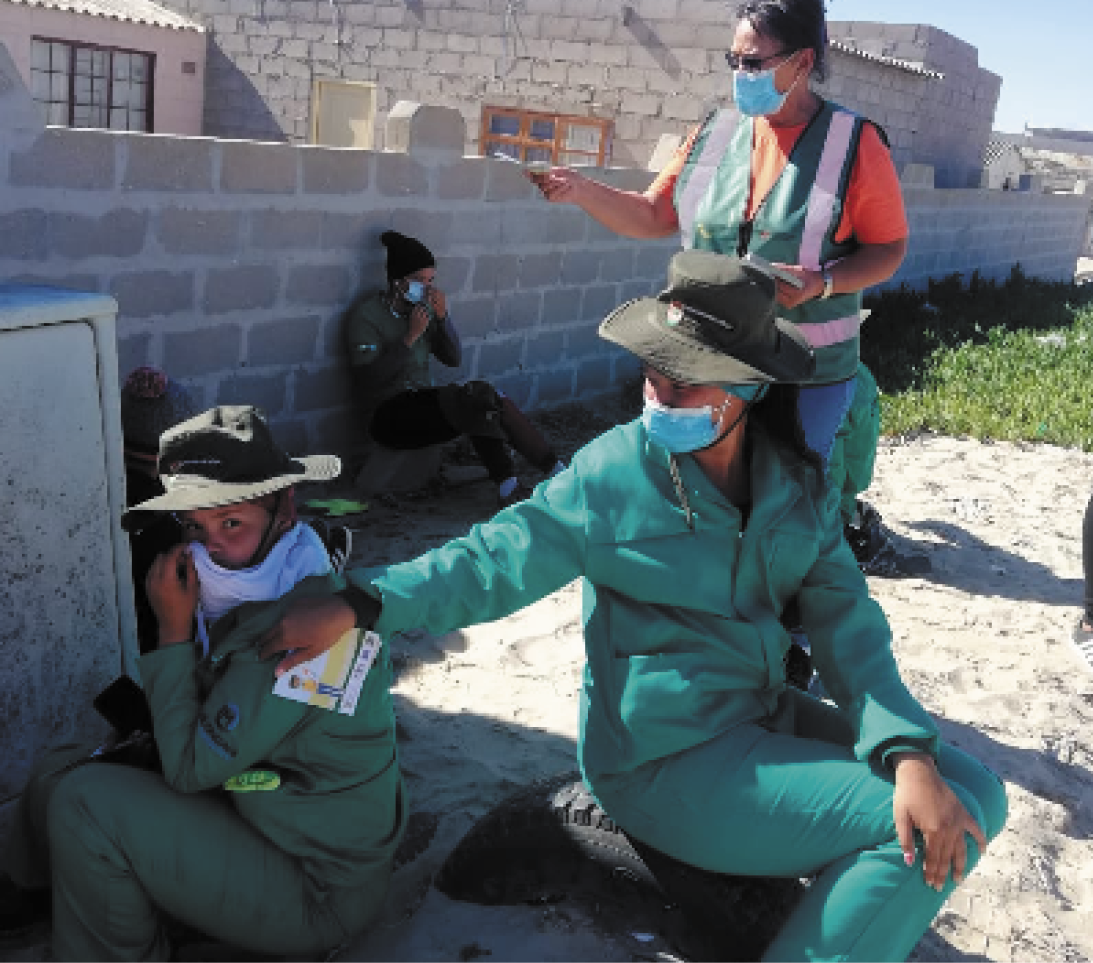
Thanks to Meissenheimer and her colleagues across the country, millions of South Africans have been vaccinated.
Meissenheimer is the Namakwa District Quality Assurance and Infection Prevention Control Programme Coordinator in the Northern Cape.
She has worked for the department, as a professional nurse, for 37 years.
Meissenheimer, who was vaccinated on 27 March 2021 at Dr van Niekerk Hospital in Springbok, encourages everyone to do the same.
“I encourage all South Africans to get vaccinated so that we can reach herd immunity as soon as possible.
We have lost too many loved ones, friends and colleagues to this virus. Our only way to stop this is to vaccinate, not just for ourselves, but for those near and dear to us.”
It has been difficult for
Meissenheimer and her colleagues since the COVID-19 pandemic hit South Africa in 2020.
“I am the district coordinator of our Rapid Response Team for contact tracing and testing where there are outbreaks. It is tough.We work long hours, often getting up early and coming home late,” says Meissenheimer.
While some people, health professionals included, either refuse to get vaccinated or are hesitant to do so, Meissenheimer stresses that they should not believe rumours and fake news about the virus and vaccines.
“The virus is real. We have seen it and experienced it. Play your part and take charge of your own health.
“We cannot promise that you won’t get COVID-19, but the vaccine can lessen the effect of the virus. It is very sad to see people dying unnecessarily from this disease,” she says.
To find a vaccination site near you, visit https://sacoronavirus.co.za/active-vaccination-sites/
Teaching the community
Teaching the community SiboneloBandile Bavuma is a retired school teacher from Langa township in the Western Cape.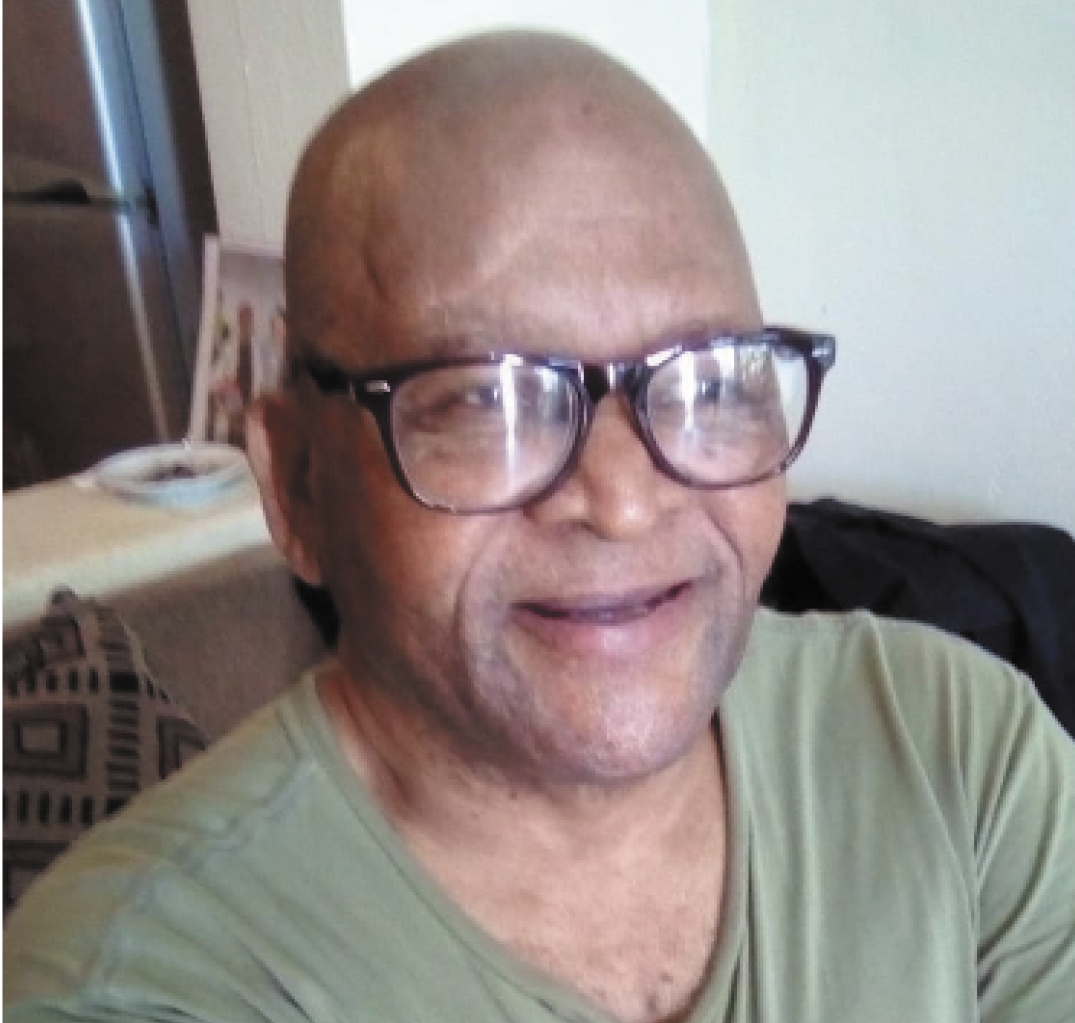
He currently runs an after school programme that assists children in his community with homework.
His after-school programme is called Masifundeni Educare Programme.
"I saw a need in my community to assist young people struggling with social ills," he says.
Bavuma decided to appoach the Department of Social Development (DSD) to find a solution to what he was seeing in his community.
“A DSD representative advised me that the Langa community needed an after-school programme that would help children with schoolwork and help to keep them off the streets. I gathered five former teachers and told them that our community needed us,” he says.
As the number of children increased, the former teachers were joined by graduates who volunteered their time to the initiative. Masifundeni is run from a local church building. It helps children in any grade with homework and tutorials in critical subjects such as maths, physical science and languages. The programme started with about 30 learners in 2019, and now has about 85 children.
Bavuma urges other retired professionals to help their communities. “As retired professionals, we have experience and we can make a difference. This programme helps a lot of children and I urge other retired people to start something similar in their respective communities.”
In addition to schoolwork, the programme encourages every child to have a library card. “We also speak to parents about the need to schedule reading time at home.
Parents also need to control television and phone time so that children can grow up reading,” he says.
Support needed
Bavuma urges community members and parents to support development programmes in their communities as they need both financial and non-financial assistance.
“Programmes like these need support. Masifundeni Educare needs a bigger space so we can divide the learners according to their grades. We also need stationery, computers, more tutors, and any other resource needed in a learning environment.”
Bavuma says seeing the impact of their work on Langa youth has been worth the effort and time he and others invest in the programme.
For more information contact Bandile Bavuma at 083 310 4371.
Thabisile's recipe for success
Thabisile's recipe for success SiboneloThabisile Danisa of KwaNdengezi, near Pinetown, in KwaZulu-Natal (KZN) is the owner of Incasa Foods, which she started in 2015. 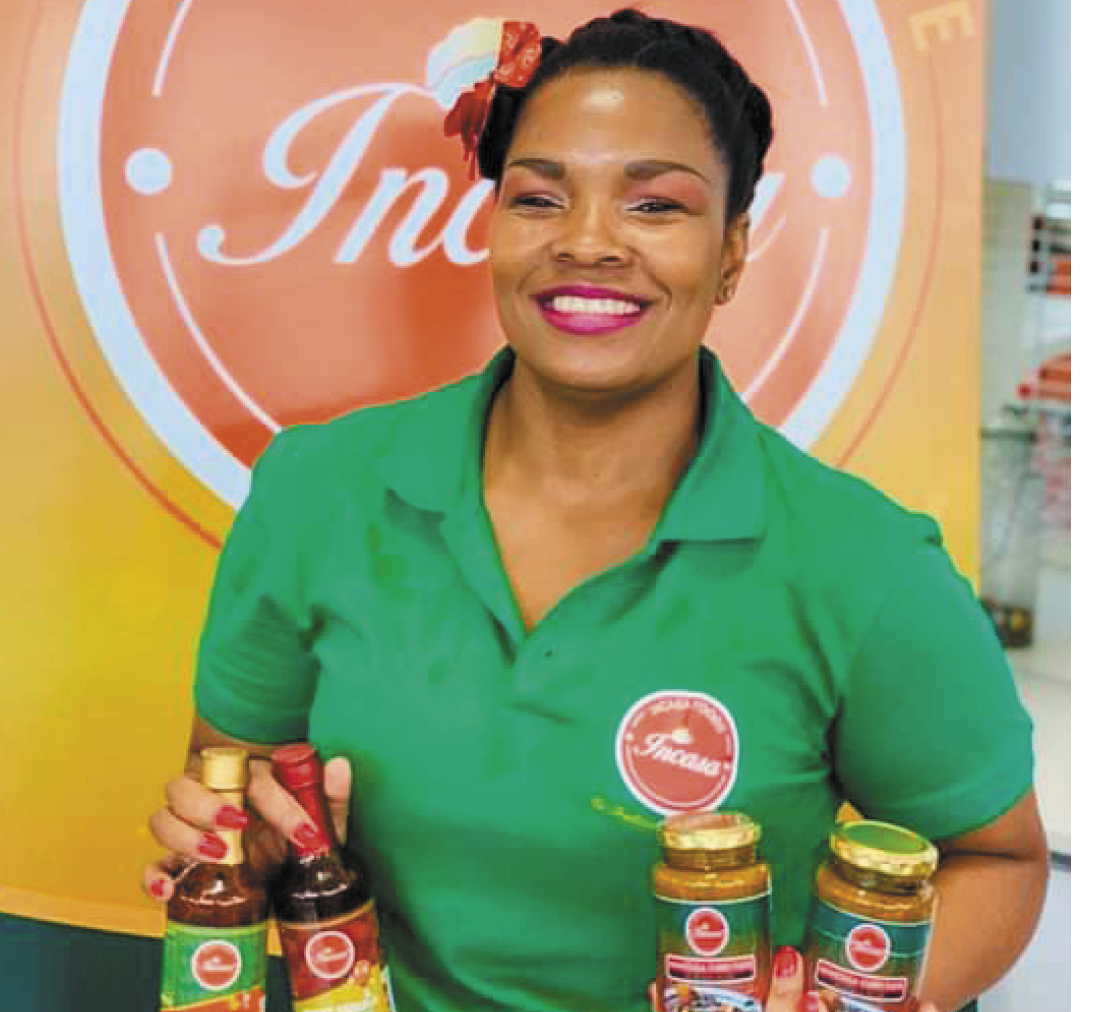
The business manufactures and distributes halaal-certified sauces, pastes and spices.
“Growing up, I always found a way to preserve surplus food from my parents’ garden and came up with homemade food products. I started this business after completing a Diploma in Hospitality Management from the Durban University of Technology,” she says.
At first, she used social media to sell her products to local customers, but dreamed of also selling to retail stores, compelling her to obtain a Halaal certification for her products.
“I approached the South African National Halaal Authority to obtain the certificate,” she says.
According to the South African National Halaal Authority, Halaal is an Arabic word which means lawful or permissible.
Muslims are permitted to eat the flesh of certain animals, which are required to be slaughtered according to specific rituals. Halaal includes all aspects of food hygiene and quality.
After receiving the certification, Danisa's products eventually made it to Spar and Oxford stores in KZN.
In 2018, she started approaching government departments for funding and discovered Agribusiness Development Agency (ADA) in KZN.
“Before ADA could fund my business, it took my products for testing to its lab to ensure they were safe for consumption,” she says.
ADA tests its beneficiaries' products for free. After passing the test, Danisa was exposed to free training opportunities, exhibitions and was assisted with the drafting of a business plan, which is needed in the application for funding.
Towards the end of 2019, ADA placed an advert in local newspapers, inviting women-owned businesses to apply for funding.
“I successfully submitted my application form and I was invited for an interview as part of ADA’s evaluation process,” says Danisa.
Incasa Food was selected, together with four other local agribusinesses owned by women, to become part of the KZN Women in Agriculture for Export Programme. The five businesses received R770 662.95 to procure processing equipment.
Danisa says this has helped her business grow. So far, Incasa Foods has created two permanent jobs, 10 internships and three temporary jobs.
For more information regarding the ADA funding email info@ada-kzn.co.za or call 033 347 8600. To find out more about halaal certification, visit www.sanha.co.za or call 011 870 8000.
The MDB unpacks the municipal outer boundary change process
The MDB unpacks the municipal outer boundary change process Sibonelo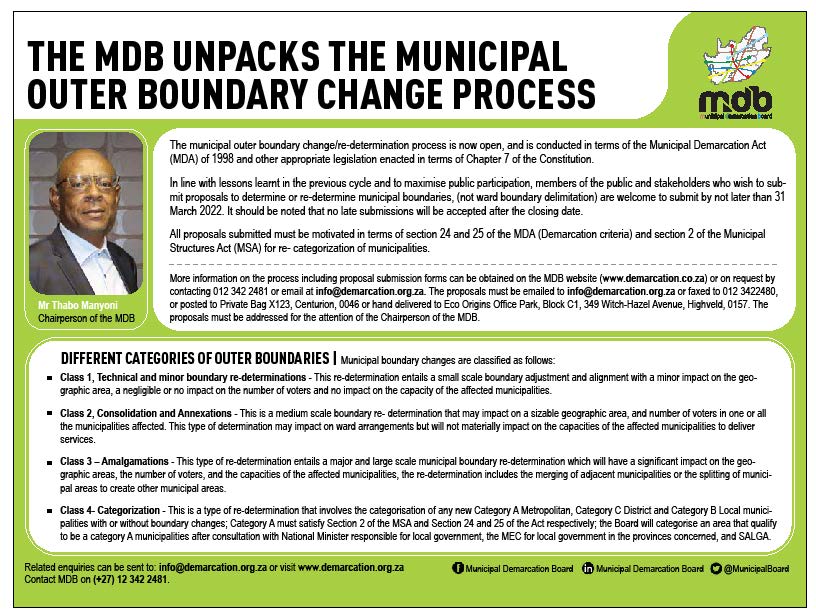
The dangers of 'sharenting'
The dangers of 'sharenting' SiboneloSocial media’s popularity is soaring, with a growing number of users taking to Facebook, Instagram and Twitter to share images of their everyday lives. 
People don’t only post images of themselves, however, but also of their children. Social media is filled with videos and pictures of charming children with sparkling personalities doing or saying something entertaining.
However, should the lives of our children be made public through social media posts?
According to the Film and Publication Board's (FPB) Communications Manager Lynette Kamineth, there is no law in South Africa that covers ‘sharenting’, which is the overuse of social media by parents to share content about their children.
“Currently, legislation in South Africa, such as the Films and Publications Act (FPA), only governs the exploitation of children for the creation, possession or distribution of child sexual abuse material, commonly known as child pornography,” she explains.
However, Kamineth adds that the FPB urges parents to tread with caution when posting on social media.
“Cybercriminals trawl through social media collecting information that may be used in their scams and crimes. Parents need to exercise restraint, caution and vigilance.”
She says that although the FPB has a relationship with most social media platforms, which allows it to flag images that contravene the FPA, it cannot police parents.
Keep your child safe
Kamineth shares the following tips to help keep children safe online:
- Teach children about the dangers that lurk online and show them how to set privacy functions on apps, and how to report and block content they do not want to see. You can also do this on their behalf.
- If a child experiences emotional distress because of an online situation, ask them how they would like to see the issue resolved. Work with them to come up with a solution.
- Teach children not to share anything online that can cause harm to someone else, but to rather report harmful posts or images to the authorities.
You can report suspected illegal online activity that is related to pornography or child abuse to the SAPS Crime Stop number - 08600 10111.
Turning old geysers into braai stands
Turning old geysers into braai stands SiboneloAn innovative entrepreneur is recycling old geysers and turning them into braai stands.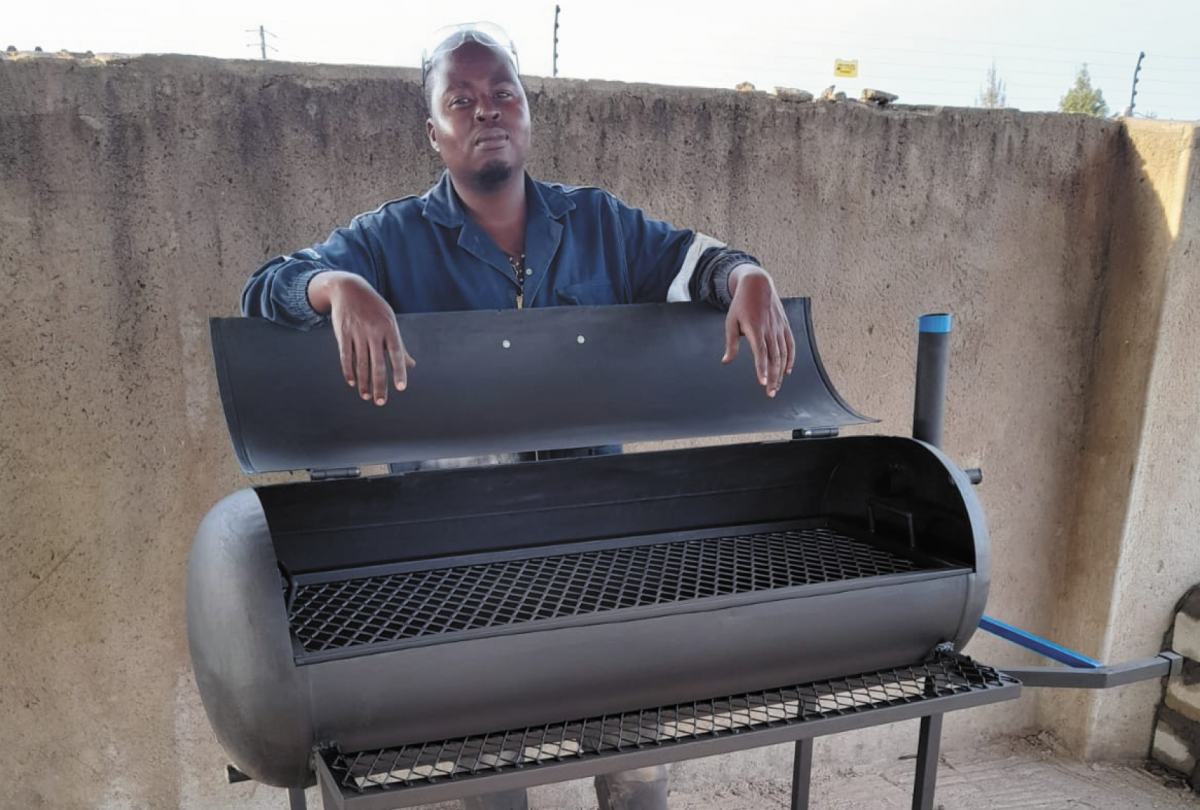
Self-taught welder Matome Maphala (30) from Seshego in Limpopo collects old geysers to make braai stands.
Maphala, who studied electrical engineering and engineering drawing at Zurel Bros SA College in Polokwane and completed his electrical tradesman apprenticeship in 2017, became an accidental entrepreneur while trying to get a job.
“While waiting, I kept myself busy by using my brother’s welding machine to learn how to weld. At the time, there was an old geyser in my parents’ backyard. I had an idea and suggested to my brother that we build a braai stand from the geyser. It came out perfectly,” he explains.
Maphala’s parents were the first to buy a braai stand from him and this encouraged him to go around the neighbourhood looking for old geysers to make more braai stands to sell.
“I buy old geysers, and anyone can sell to me. People have also donated their old geysers to me. What I have learnt from my business is that recycling is important. If we normalise reusing any recyclable material, we will save the environment and have litter-free streets and parks,” he says.
The price of Maphala’s braai stands range between R1 000 and R3 000, depending on the size.
Maphala’s two brothers and a friend work with him, and they sell the braai stands on the streets in Seshego.
While he is focused on welding and growing his business, he encourages people to consider going to a technical and vocational education and training college to learn skills the country has a shortage of.
Now that he has developed a passion for manufacturing, he aims to manufacture braai stands at a high volume to start supplying retailers.
“At the moment, we deliver orders locally, but we are also preparing to courier nationally from 2022. This expansion is exciting, as we will have more work to do,” he says.
For more information contact Matome Maphala at 082 624 4331
Vooma before the variant catches up
Vooma before the variant catches up Estelle Greeff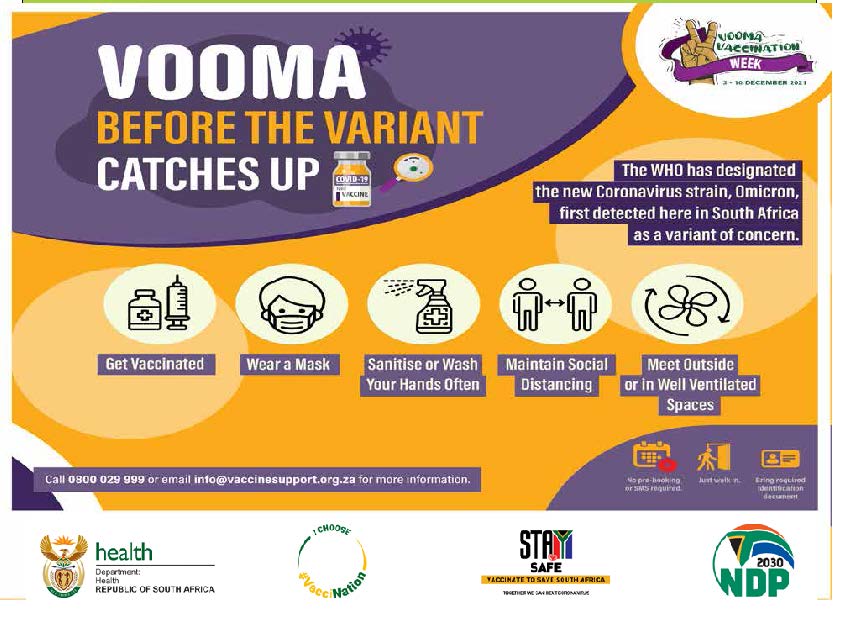
What to do if your child goes missing
What to do if your child goes missing SiboneloIf you suspect that your child is missing, the first thing to do is to open a missing person’s case at a police station near you. 
According to Bianca Aswegen, the National Coordinator at Missing Children South Africa (MCSA), there is no waiting period to report a missing person in South Africa.
“The first 24 hours are crucial because the chances of finding them are higher,” says Aswegen.
MCSA was established in 2007 to assist families of missing children. The organisation also helps the South African Police Service (SAPS) in all missing persons’ cases.
Once MCSA is informed about a missing child, it provides an emergency response service to advise callers on immediate steps to take.
The organisation also uses its national networks to distribute flyers of missing persons to create mass awareness of the missing individual.
“Our network provides an incredibly efficient, instant mass distribution of flyers, within moments of an incident,” Aswegen says.
MCSA urges parents and guardians to be extra vigilant and educate themselves and their children on safety measures.
Tips for children
Aswegan says it is difficult to advise children on what to do when they are kidnapped, but there are few general tips to consider.
She says, if possible, the child should try and draw motorists’ attention if they are in a car, or scream and shout as loud as possible if they are in public areas.
“It is important for children to try and get away by all means possible,” she says.
Tips for parents and caregivers
- Teach children how to keep themselves safe;
- Tell your children to stay inside the school grounds while waiting for transport, and to always stay in a group of friends;
- If children are going to a shopping mall or the beach, always ensure that there is adult supervision;
- It is important to tell children not to take anything from a stranger, or go any where with strangers.
- Tell your children to cause a scene and draw attention to themselves if someone makes them feel uncomfortable.
For more information, visit the MCSA's website at www.missingchildren.org.za, email: info@missingchildrensa.org.za or call 072 647 7464. You can also report a missing child on the SAPS Crime Stop number - 08600 10111.
